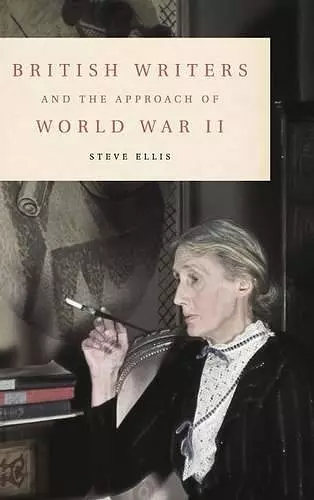British Writers and the Approach of World War II
Format:Hardback
Publisher:Cambridge University Press
Published:27th Oct '14
Currently unavailable, and unfortunately no date known when it will be back

Ellis explores the ways in which British modernist writers wrestled with the acute anxiety and anticipation preceding World War II.
Ellis explores the ways in which modernist writers like T. S. Eliot, Virginia Woolf and H. G. Wells witnessed the approach of World War II and how their writings raised profound questions emblematic of the era. No other literary study has looked at the period covered in such detail.This book considers the literary construction of what E. M. Forster calls 'the 1939 State', namely the anticipation of the Second World War between the Munich crisis of 1938 and the end of the Phoney War in the spring of 1940. Steve Ellis investigates not only myriad responses to the imminent war but also various peace aims and plans for post-war reconstruction outlined by such writers as T. S. Eliot, H. G. Wells, J. B. Priestley, George Orwell, E. M. Forster and Leonard and Virginia Woolf. He argues that the work of these writers is illuminated by the anxious tenor of this period. The result is a novel study of the 'long 1939', which transforms readers' understanding of the literary history of the eve-of-war era.
'Concentrating on established writers including T. S. Eliot, E. M. Forster and Virginia Woolf, Ellis's study maps the rich, discursive contexts surrounding debates over war policy, different forms of possible government and peace aims in 1939 Britain … [Ellis's] research adds important detail and nuance to narratives of the development of public attitudes to the approaching war.' Laura Blomvall, Journal of Modern Literature
ISBN: 9781107054585
Dimensions: 229mm x 152mm x 19mm
Weight: 550g
260 pages